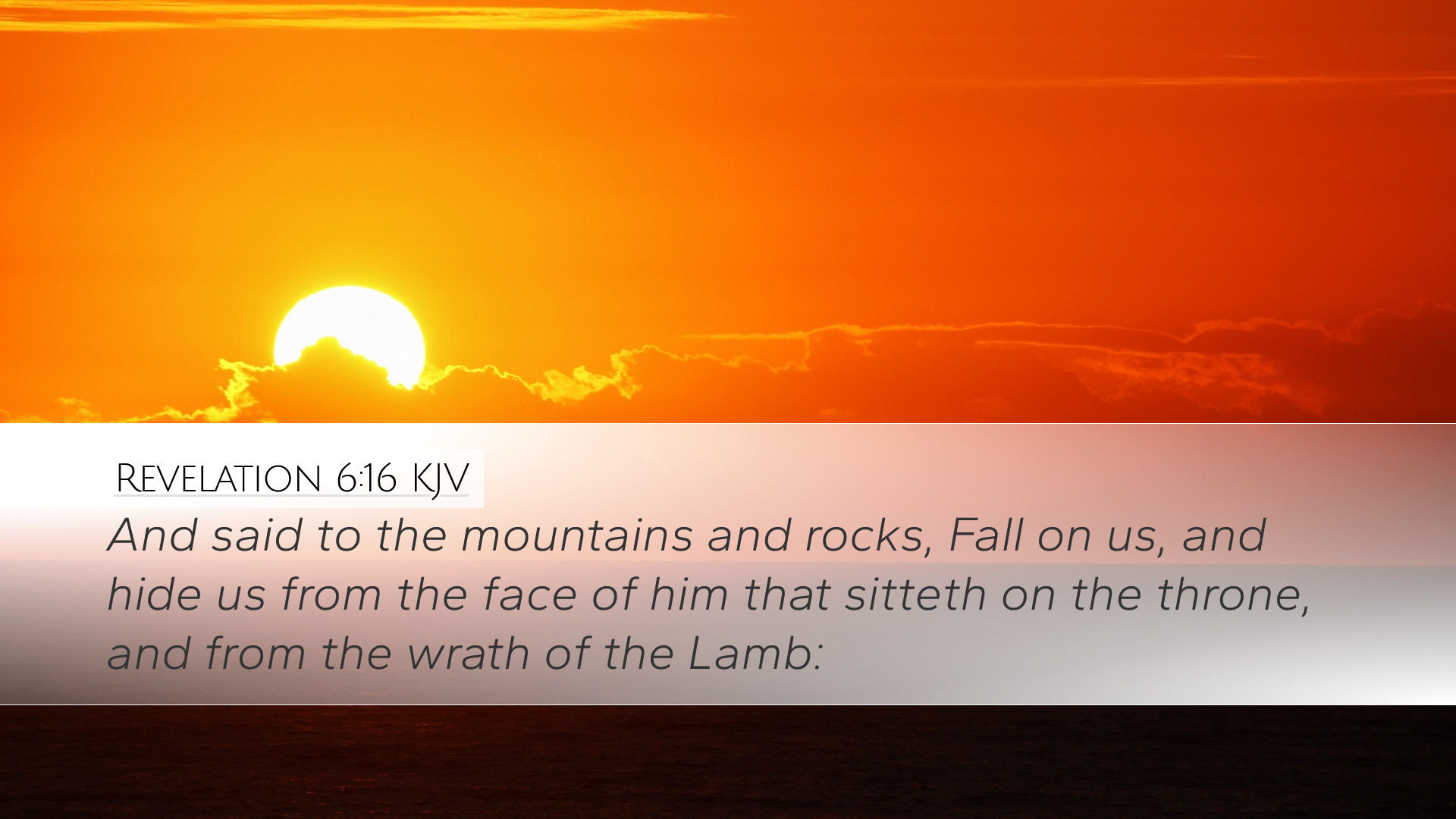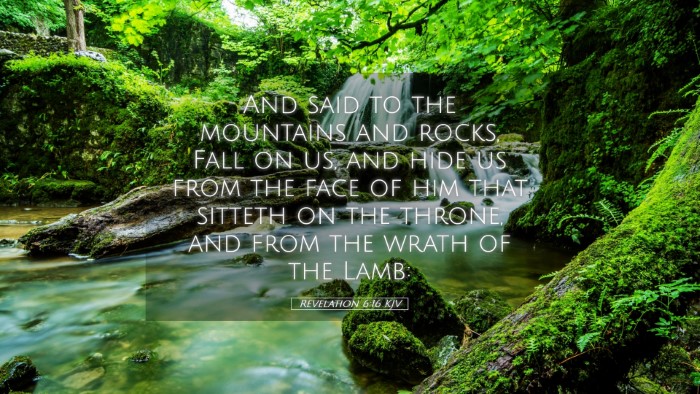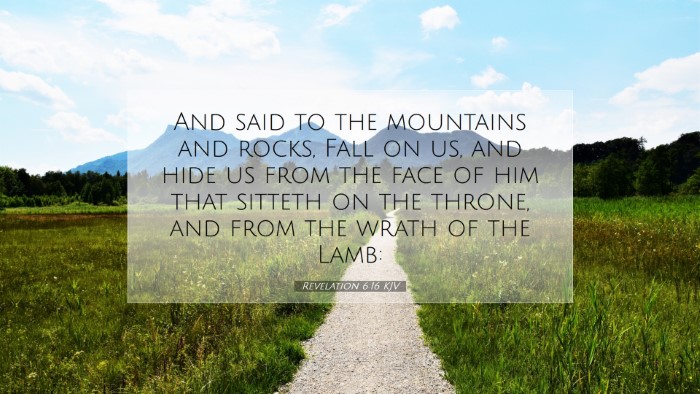Summary of Commentary on Revelation 6:16
This verse is a poignant depiction of the terror invoked by the revelation of cosmic judgment and the impending wrath of God against unrepentant humanity. The imagery used here vividly illustrates the fear that grips those who have rejected divine grace, as they face the consequences of their choices in the eschatological context of the end times.
Main Themes and Insights
-
The Cry of the Wicked:
The response of the "kings of the earth and the great men, and the rich men, and the chief captains, and the mighty men" is one of desperation and terror. They appeal to nature to cover them, illustrating the depth of their fear and acknowledgment of God's sovereignty (Barnes). Matthew Henry elaborates on how this cry reflects an acute awareness of their own impotence before divine judgment, recognizing that no earthly power can shield them from God’s wrath.
-
The Face of God:
To "hide us from the face of him that sitteth on the throne" symbolizes a profound realization of the holiness and justice of God. This phrase captures the theological cornerstone that God is seated as the ultimate judge (Clarke). It emphasizes the terror associated with encountering God without the intercession of the Lamb, highlighting the necessity of Christ’s mediatorial role.
-
The Wrath of the Lamb:
Remarkably, it is described as the "wrath of the Lamb," an apparent paradox that combines the image of gentleness associated with a lamb and the fierce judgment of God. Albert Barnes notes that this juxtaposition serves to illustrate Christ's dual nature as Redeemer and Judge, reinforcing the gravity of rejecting the redemptive work of Christ.
-
The Role of Creation:
The mention of mountains and rocks is significant in biblical literature, often serving as symbols of stability and permanence. Their call to "fall on us" demonstrates the futile hope in creation for escape from the Creator (Henry). Instead of finding refuge in the natural world, the inhabitants of the earth must confront the reality of divine justice.
Theological Implications
This verse serves as a stark reminder of the consequences of sin and the seriousness of rejecting God’s grace. The imagery used suggests that there is no hiding from divine judgment; those who oppose God find themselves in a position of utter vulnerability (Clarke). Furthermore, the reference to the Lamb evokes critical theological reflection, encouraging believers to understand the depth of Christ's sacrifice in contrast to the judgment awaiting those who remain unrepentant.
Application for Believers
For pastors and theologians, this passage serves as both a warning and a call to evangelism. It emphasizes the urgency of proclaiming the gospel before the end times arrive. It challenges believers to reflect on their own lives, assuring that they stand covered by the grace of Christ. As students of Scripture delve into this text, they are reminded of the importance of repentance and the grace offered through the Lamb.
Conclusion
Revelation 6:16 hauntingly captures the essence of human rebellion against God and the inevitable consequences that follow. The combined insights from various public domain commentaries illuminate the significance of this passage in highlighting God’s sovereignty, the necessity of Christ’s mediation, and the call to salvation. It underlines the urgency for believers to share the hope found in Christ as the ultimate refuge in the face of divine judgment.


